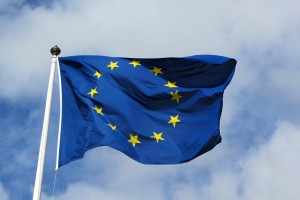
After more than 40 years of operation, DTVE is closing its doors and our website will no longer be updated daily. Thank you for all of your support.
UK seeks post-Brexit ‘country of origin’ deal update by May
A cross-party report on the impact of Brexit has called for the UK government to provide an update on its progress in securing a new ‘country of origin’ deal by the end of May 2018.
 The Digital, Culture, Media and Sport Committee report warned that if country of origin rules – which allow TV companies to broadcast throughout the EU from any member country – cease to apply, this will have an inevitable impact on the UK broadcasting industry.
The Digital, Culture, Media and Sport Committee report warned that if country of origin rules – which allow TV companies to broadcast throughout the EU from any member country – cease to apply, this will have an inevitable impact on the UK broadcasting industry.
“The government must set out the steps it is taking to avoid that outcome, explaining its negotiating objectives and the timescale for such negotiation,” said the report.
“The government should also confirm as soon as possible that it intends for the United Kingdom to remain members of the European Single Market and under the terms of the current country of origin rules, for a transitional period after Brexit, until the end of 2020.”
The EU’s ‘country of origin’ rules are enshrined in the Audio-Visual Media Services (AVMS) Directive and currently allow broadcasters from outside the EU to choose the UK as their centre of operations when establishing a European headquarters.
The report said that UK broadcast regulator Ofcom licenses more than half of the 2,200 channels broadcast across the EU, and of that more than 1,100,650 are being broadcast out of the UK to other countries.
In Ofcom’s written evidence to the committee, Ofcom CEO Sharon White said the country of origin principle is “the biggest issue for our sector” and should remain in place after Brexit “so that media companies based here do not face new hurdles, or feel compelled to move their operations to another European country.”
“We want to encourage, not undermine, the growth of our cultural and creative industries,” said White. “The country of origin rule benefits member states and supports broadcasters, providing a mass audience, and promoting cultural exchange across borders.”
AETN UK, a joint venture between Sky and US-based A+E Netorks, said in its written evidence that if the UK could not continue to participate within the country of origin framework – or a negotiated equivalent – it would reduce investment in the UK, leading to job losses and relocation of businesses.
The Brexit impact report said that negotiations designed to keep the UK within the country of origin rules would likely take place outside an EU–UK trade deal, as most countries insist that culture should not be treated like other commodities.
However, it said that maintaining country of origin rules through a separate agreement is “far from assured” because, as pointed out by the European Scrutiny Committee, there is “no precedent for a third country securing single market-equivalent access for broadcasters”.
“Country of origin cannot endure merely by virtue of existing in UK law,” said White at Ofcom. “It will only continue to stand if the remaining 27 member states continue to allow UK-based companies to broadcast to their markets under UK rules; and if the UK allows companies based overseas to broadcast here under EU rules, even though we would no longer have direct influence over these rules.”
The section of the report relating to country of origin regulation can be accessed here. The full potential impact of Brexit on the creative industries, tourism and the digital single market is available here.


